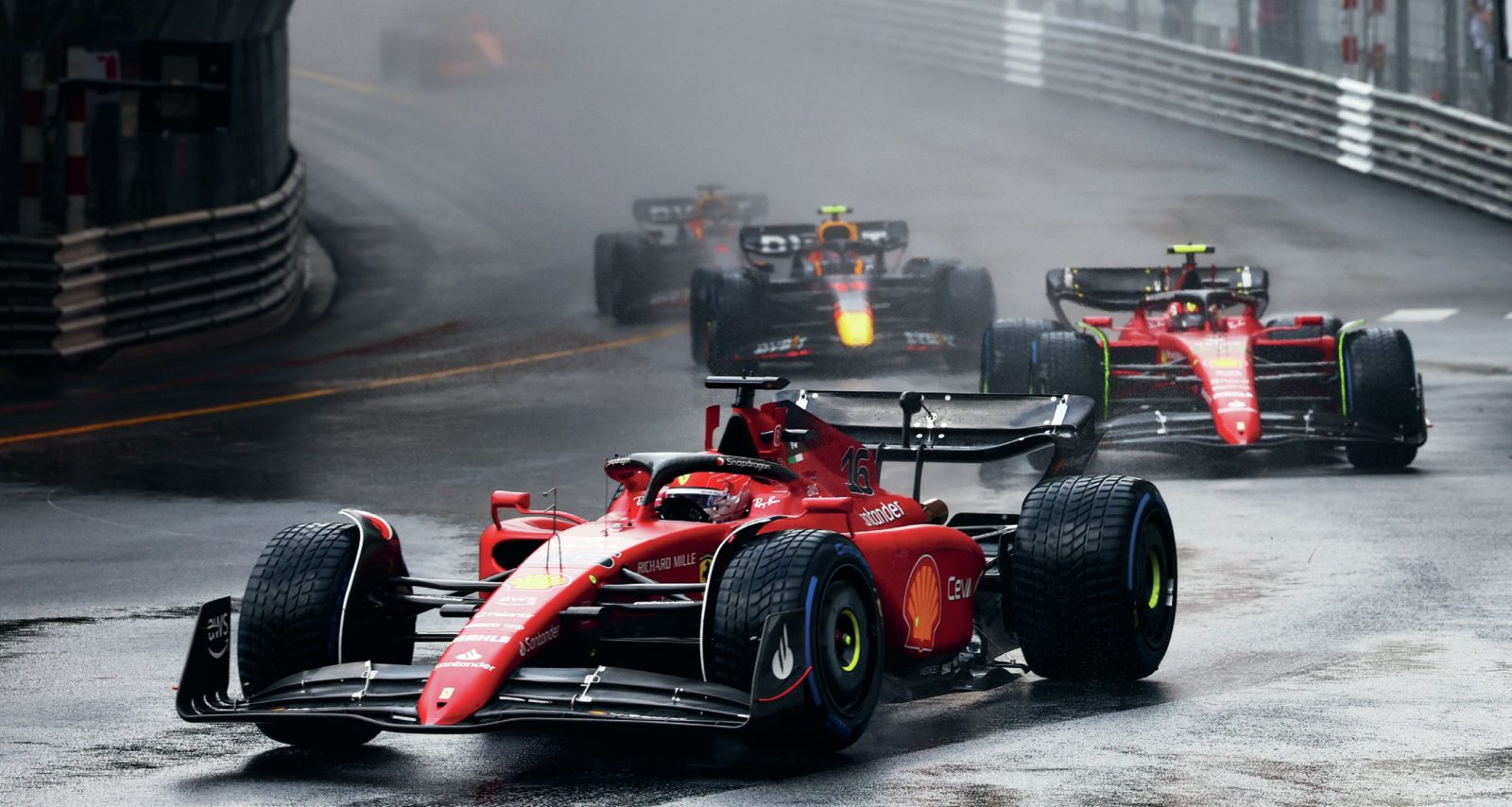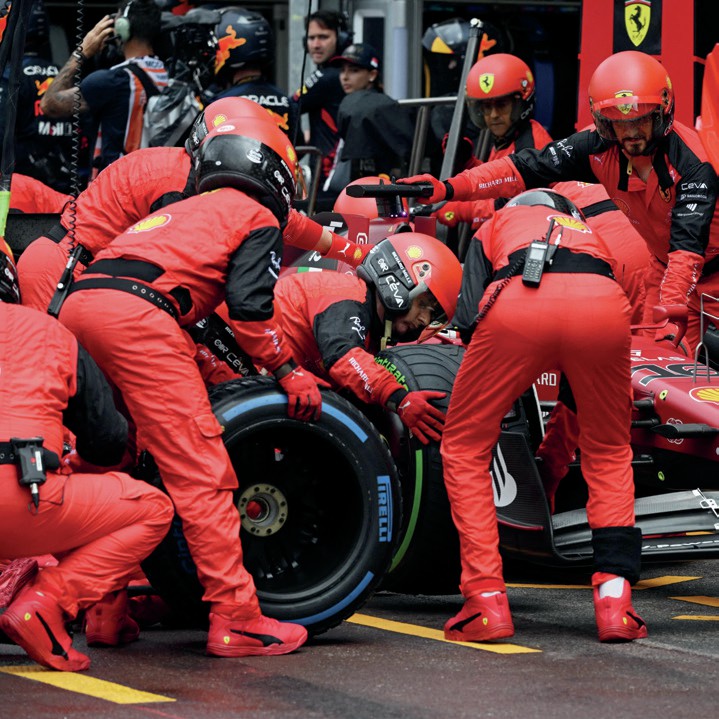Ferrari tactics fail in 2022 Monaco GP
Ferrari had two options to try and secure victory in a turbulent Monaco Grand Prix, yet it took neither, says Mark Hughes

Ferrari locked out the front row with Leclerc on pole, yet the weather and poor strategy combined to lose this race
Ferrari was thrown a tricky tactical challenge by the Monaco weather, and failed to meet it.
With everyone on wets, the two Ferraris and two Red Bulls quickly put distance on the rest of the Lando Norris-led field. By lap 15 leader Leclerc had 5sec on the other Ferrari of Carlos Sainz and 8sec on Sergio Pérez in third. More crucially, this was also the first lap on which the leader had a pitstop’s-worth of gap on the ‘midfield’ behind the top four.
Ferrari could – perhaps should – have pitted him at this point. The hazard of that, though, was that he would exit behind the Red Bulls which might just bank their positions and stay out until the track was dry enough to get straight onto slicks. With Leclerc also needing at some point to get onto slicks, he’d still be behind them. So Ferrari left him out.
“Ferrari’s late stop for inters in Monaco was a tactical no-man’s land”
Ferrari potentially had the perfect answer to the dilemma of pitting Leclerc on lap 15. It could have done so while leaving Sainz out for more laps, still ahead of both Red Bulls, to also get straight onto slicks.
Which is exactly what he was urging the team to do over the radio. That way, Ferrari would have a foot in each strategic camp and always with a car ahead of the Red Bulls.
If instead one (or both) of the Red Bulls went onto inters, although there was every chance they could make up the 20sec pitstop loss within five laps (so much quicker were the inters than the wets), they would still be behind the inters-shod Leclerc. If it dried enough to get onto slicks in less than five laps, Sainz would win. If not, Leclerc would win.
But that’s not what happened. With Ferrari leaving Leclerc out there, by lap 16 third-place Pérez now also had a pitstop’sworth of gap over the midfield – and Red Bull brought him in for inters. Now the trap was set for Ferrari unless it reacted immediately.
Pérez had been running 8.5sec behind Leclerc. Pérez was going to be 4-5sec per lap faster on inters than Leclerc on wets. Had Ferrari pitted Leclerc on the next lap, he’d have exited still ahead of Pérez. But Ferrari had totally underestimated how much faster the intermediate was and figured it had the luxury of another lap’sworth of thinking time about whether or not to miss out the inters phase. It didn’t.
If it was going to commit to inters for Leclerc, it needed to have pitted him on lap 16. By pitting him on lap 17, Ferrari lost Leclerc the race. Either pitting him on lap 16 for inters (the safe option) or staying out in the lead for long enough to get straight onto slicks (riskier in live time but in hindsight comfortably OK) would have secured him the win. But making a late stop for inters was a tactical no-man’s land.

A late tyre stop and a pit delay cost Leclerc
Now Ferrari’s victory hopes rested on Sainz and his straight-onto-slicks strategy.
If he came in too soon his out-lap slicks would be slower than Pérez’s inters and he’d be overcut out of the lead. If he stayed out too long, Pérez might undercut him out of the lead. It was right on that cusp as Ferrari pitted Sainz at the end of lap 21 – and Pérez stayed out in response, knowing he had to nail a very fast in-lap.
Sainz encountered Nicholas Latifi’s Williams as he exited and was delayed by it for much of the subsequent lap. It lost him around 1.5sec immediately and delayed him getting his tyres up to temperature. Pérez made his stop and exited less than 1sec ahead. The Williams had been the final nail in the coffin for Ferrari’s victory hopes.
